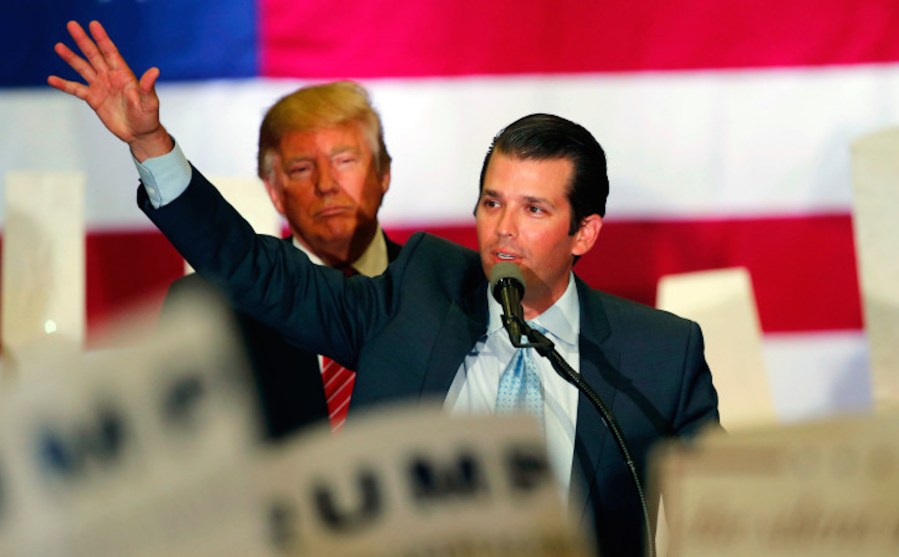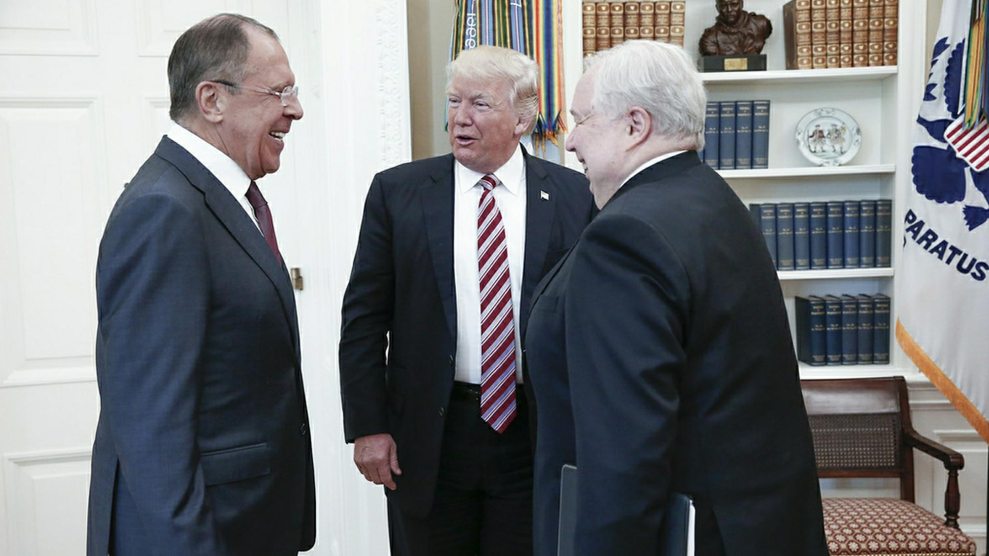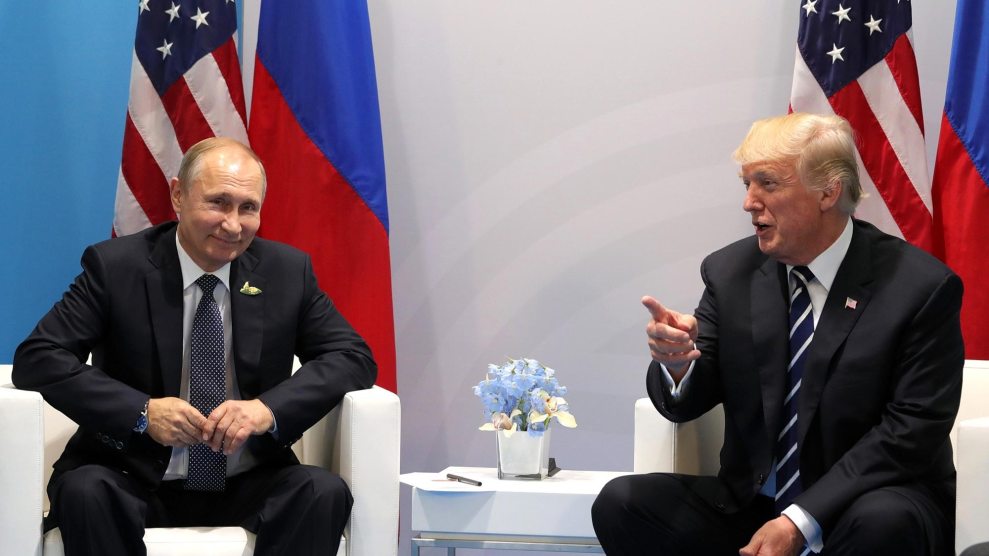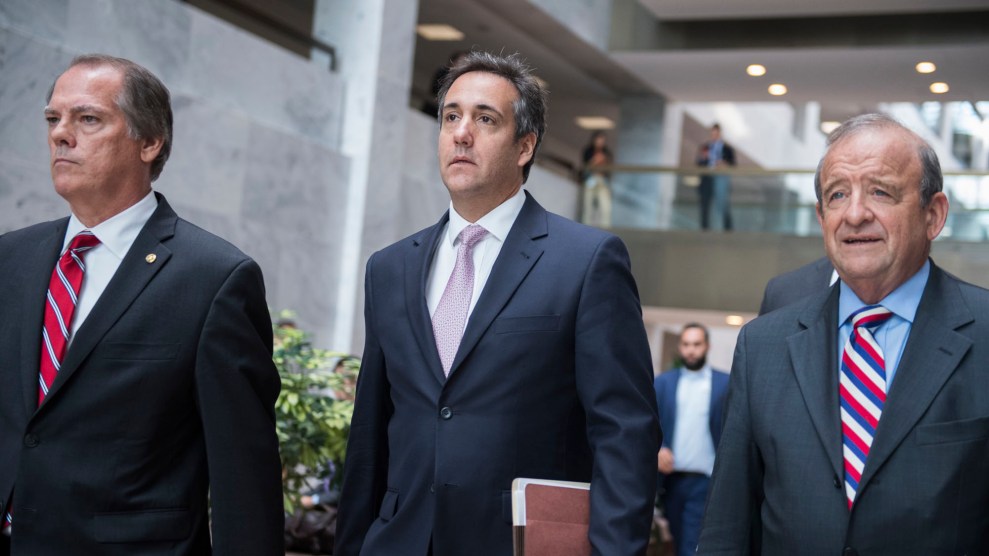
Gerald Herbert/AP
The Republican National Committee is shelling out hundreds of thousands of dollars for legal bills incurred by President Donald Trump’s son—and that’s an unprecedented and legally questionable move, campaign finance experts say.
The RNC acknowledged Tuesday that it paid more than $230,000 in August for President Trump’s legal expenses and nearly $200,000 to Donald Trump Jr.’s lawyers. The bills resulted from investigations into whether the Trump campaign helped Russia interfere with the 2016 presidential election.
“It pushes the envelope,” said Larry Noble, general counsel at the Campaign Legal Center, a watchdog group. “It fits into a framework of them using all sorts of means to spend the money of others.”
President Trump is the first American president to use committee funds to cover the costs of a criminal probe, Reuters, which first reported the payments, noted. Payment to a president’s son for legal fees is even more novel.
The RNC’s own lawyers conducted an analysis that determined its payments to President Trump’s lawyers are lawful, and they are considering whether the organization can pay legal bills of White House staffers, the Washington Post reported. The committee did not respond to queries regarding whether the RNC’s lawyers also looked into the legality of payments to Trump Jr.’s lawyers.
In accepting RNC money to pay for their legal expenses, the Trumps are taking advantage of a 2014 law that dramatically increased donations that party committees can accept for an account designated to cover campaigns’ legal expenses. Donors can give $101,700 to accounts like the one the GOP is using to cover the Trumps’ legal bills.
Advocates of the law have argued that party legal funds could be used to cover legal expenses incurred by campaigns, such as recounts—not legal probes into candidates’ conduct. But the Federal Election Commission permits the use of campaign money to pay candidates’ legal bills. Campaign finance experts said the RNC can assert that the Russia investigation is campaign-related.
Paying Trump Jr.’s fees is harder to justify under FEC rules because the president’s son has never been a party employee. “It’s a stretch,” said Brett Kappel, a campaign finance lawyer with Ackerman LLP.
The bills the RNC paid for Trump Jr. reportedly resulted from his lawyers’ preparation for his closed-door interview by staffers for the Senate Judiciary Committee. Committee members scheduled the interview to investigate Trump Jr.’s role in a June 2016 Trump Tower meeting. According to emails he released after the New York Times obtained them, Trump hoped to receive damaging information on Hillary Clinton that he was told was provided by Russian President Vladimir Putin’s government.
Kappel argued that Trump Jr.’s legal expenses from the Trump Tower meeting are not sufficiently related to campaign legal matters to fall under the purview of the RNC’s legal fund.
Noble, meanwhile, speculated that if the payments to Trump Jr. are challenged, the FEC will likely allow them, because his legal expenses resulted from work he did to aid his father’s campaign.
Still, he pointed out that the legal fund “is supposed to be for election challenges, not for defending the president’s son over allegations that arose out of the election.”
Donors can now give to the RNC’s legal fund in the hope they will aid the Trumps—and that the the president and his family will see the public donations, Noble noted. It is striking, he said, that a president who touts his personal wealth is hitting up contributors for his legal costs—and those of his son.
“We’re dealing with someone who claims he’s worth billions of dollars,” he said. “Does he really want to be in the position of soliciting money to pay his legal fees?”


















